Your immune system is your body’s first line of defense—but what you eat could be quietly weakening it or giving it the strength it needs to fight back. While some everyday foods support immune health with vitamins, antioxidants, and anti-inflammatory power, others may sabotage your system by fueling inflammation and disrupting gut balance. To stay resilient year-round, it’s important to know which ingredients to embrace—and which to avoid. In this guide, we reveal 8 foods that can supercharge your immune system, and 8 sneaky ones that may be doing more harm than good.
1. AVOID: Sugary Foods and Beverages
While sweets might offer a quick pick-me-up, they come at a cost to your immune health. Excessive sugar intake has been shown to suppress the immune response by reducing the activity of white blood cells for several hours after consumption. Over time, this can leave your body more vulnerable to infections and inflammation. From sodas and pastries to hidden sugars in sauces and cereals, the cumulative impact can be significant. Limiting added sugars in your daily diet supports more stable blood sugar levels and a more resilient immune system capable of mounting a timely defense when needed.
2. AVOID: Processed Foods
The convenience of processed foods often masks their nutritional shortcomings. Many packaged snacks, ready-made meals, and frozen entrees are loaded with preservatives, artificial additives, and inflammatory fats—all of which can interfere with immune function.
These ultra-processed items are typically low in essential nutrients like zinc, vitamins A and C, and fiber that the immune system relies on. In addition, their high sodium and sugar content may contribute to chronic inflammation, further weakening your body’s defenses. Choosing fresh, whole ingredients over convenience foods can significantly reduce immune burden and help your system function at its full protective potential.
3. AVOID: Fried Foods
Golden and crispy on the outside, fried foods can be a disaster for your immune health on the inside. They’re often cooked in oils high in trans fats or omega-6 fatty acids, which promote inflammation when consumed in excess. Chronic inflammation hampers immune response, making it harder for the body to fend off infections. French fries, fried chicken, doughnuts, and even fried veggies can disrupt digestive health and contribute to oxidative stress. Over time, diets heavy in fried foods may impair white blood cell function and slow recovery. Reducing fried intake supports a more efficient and balanced immune system.
4. AVOID: Salty Foods
It’s not just your blood pressure at risk when you consume too much salt—your immune system can also take a hit. Research has linked high sodium intake to impaired immune function and increased susceptibility to infections.
Salty snacks, canned soups, frozen meals, and fast food often exceed daily sodium recommendations without delivering much nutritional benefit. Too much salt may interfere with the ability of white blood cells to fight bacteria, and it can disrupt the gut microbiome, weakening the body’s overall defense. Cutting back on salt-laden foods is a simple yet powerful step toward better immune balance.
5. AVOID: Red Meat and Processed Meats
Enjoying a steak now and then isn’t the issue—it’s frequent consumption of red and especially processed meats that can be problematic for immunity. These meats can promote the release of inflammatory compounds in the body and are often high in saturated fat, which has been linked to weakened immune responses.
Bacon, sausage, hot dogs, and deli meats may also contain nitrates and other preservatives that strain your body’s defense systems. When red meat replaces nutrient-dense plant-based or lean protein options, it can leave gaps in essential vitamins and antioxidants. Moderation is key for protecting immune function.
6. AVOID: Alcohol
Even moderate alcohol consumption can disrupt immune activity. Alcohol interferes with the production and function of immune cells, impairs gut health, and weakens the body’s natural barriers to pathogens. Chronic drinking can reduce the body’s ability to respond effectively to infections and slow the recovery process. It also impairs sleep, a critical factor in immune regulation. From cocktails to beer, alcohol’s cumulative impact on inflammation and immune suppression shouldn’t be underestimated. Reducing or avoiding alcohol—especially when you’re run down or during cold and flu season—can dramatically improve your body’s resilience and ability to fight illness.
7. AVOID: Refined Carbohydrates (White Bread, Pasta, Baked Goods)
Stripped of their fiber and nutrients, refined carbs act more like sugar in the body than fuel. They cause blood sugar spikes and crashes, promoting inflammation and oxidative stress—two key enemies of a well-functioning immune system.
Foods like white bread, pastries, and regular pasta offer little in the way of vitamins or minerals that support defense mechanisms. A diet heavy in refined carbs may also disturb the gut microbiome, which plays a major role in immune regulation. Swapping these out for whole grains can enhance digestion, stabilize energy, and give your immune system the support it needs.
8. AVOID: Artificial Sweeteners
They may save calories, but artificial sweeteners could be compromising your immune system. Substances like aspartame, sucralose, and saccharin have been shown in some studies to disrupt gut bacteria, which can directly impact immunity. A healthy gut is crucial for regulating inflammation and keeping immune cells functioning properly. These sweeteners are found in diet sodas, sugar-free gums, and many “low-calorie” packaged products. While research is ongoing, minimizing artificial sweeteners is a precaution worth considering if you’re trying to build stronger immune defenses. Natural alternatives like stevia or honey (in moderation) may be a better fit for long-term health.
9. EAT: Citrus Fruits
Few foods are as iconic for immunity as citrus fruits. Packed with vitamin C, they help stimulate white blood cell production—your body’s core defense against infections. Oranges, lemons, limes, and grapefruits also deliver hydration, fiber, and powerful antioxidants that protect cells from damage. Beyond vitamin C, they contain natural plant compounds that reduce inflammation and support immune system regulation. Enjoy them whole, juiced, or zested into meals for a fresh burst of immune-boosting power. Whether you’re fending off a cold or maintaining wellness, citrus fruits are a simple, effective, and delicious ally for staying strong.
10. EAT: Red Bell Peppers
Don’t underestimate the bright red bell pepper—it actually contains more vitamin C than an orange. This crunchy vegetable delivers a double dose of immune support through its antioxidant content and high levels of beta-carotene, which the body converts into vitamin A.
Vitamin A plays a crucial role in maintaining the integrity of skin and mucous membranes, your first physical barrier against pathogens. Toss bell peppers into stir-fries, roast them as a side, or snack on them raw for a powerful, low-calorie nutrient boost. Their vibrant color is a good clue—they’re brimming with benefits that strengthen your defenses.
11. EAT: Broccoli
This cruciferous veggie is often labeled a superfood—and for good reason. Broccoli is bursting with immune-supporting nutrients, including vitamins A, C, and E, as well as fiber and antioxidants. It also contains sulforaphane, a powerful compound that may activate detoxifying enzymes and enhance the body’s defense systems. Light steaming preserves its nutritional value while making it easier to digest. Add it to grain bowls, stir-fries, or enjoy it roasted as a side dish. Including broccoli regularly in your meals offers a dependable way to nourish your body’s protective systems from the inside out.
12. EAT: Garlic
Garlic’s reputation as a health powerhouse isn’t just folklore. It contains allicin, a sulfur compound that’s been shown to enhance the response of immune cells and improve resistance to colds and flu. Garlic also supports heart health and has antimicrobial properties, which means it can help the body fight off unwanted invaders. Its bold flavor makes it an easy addition to soups, sauces, roasted vegetables, and marinades. Regular consumption may not only improve immune readiness but also reduce the severity and duration of illnesses. When it comes to kitchen staples, garlic brings both taste and protective power to the table.
13. EAT: Ginger
A warming root with centuries of medicinal use, ginger brings both flavor and immune-enhancing properties. It has natural anti-inflammatory and antioxidant effects, helping the body respond more efficiently to infection and stress.
Compounds like gingerol not only ease digestion and reduce nausea but also support the body’s ability to ward off illness. Whether sipped in tea, grated into soups, or added to stir-fries, ginger is a versatile ingredient that contributes to immune health and overall wellness. Consistent use may help reduce inflammation levels and keep immune cells alert and active—making it a smart addition to your daily diet.
14. EAT: Spinach
This leafy green is a nutritional multitasker that does wonders for immune function. Rich in vitamin C, beta-carotene, folate, and antioxidants, spinach helps reinforce the immune response on multiple fronts. Folate supports the production of new cells, while beta-carotene converts to vitamin A, aiding mucosal defense. Spinach’s nutrients are more bioavailable when lightly cooked, so consider sautéing or wilting it into meals. It also provides iron, which is vital for the health of immune cells. Whether blended into smoothies or added to pasta dishes, spinach adds a vibrant nutrient punch that helps keep your defenses in top form.
15. EAT: Yogurt
Supporting your immune system starts with taking care of your gut—and that’s where yogurt shines. It’s loaded with probiotics, beneficial bacteria that help balance your digestive tract and strengthen the gut-immune connection.
A large portion of the immune system resides in the gut, so maintaining healthy flora is essential for defending against illness. Yogurt also contains protein and vitamin D, which play important roles in immune cell function. Choose varieties with live active cultures and minimal added sugar for the greatest benefit. A daily serving of yogurt can help keep your system balanced and ready to fight.
16. EAT: Almonds
Almonds offer more than just a satisfying crunch—they’re packed with vitamin E, an antioxidant crucial for immune function. Unlike vitamin C, which is water-soluble, vitamin E is fat-soluble, and almonds provide both the vitamin and the healthy fats needed for proper absorption.
A small handful can supply nearly half your daily recommended intake. Almonds also contain protein, fiber, and magnesium, supporting overall health and energy levels. Whether sprinkled on yogurt, added to salads, or eaten as a snack, almonds are an easy and effective way to give your immune system a boost while keeping your appetite in check.






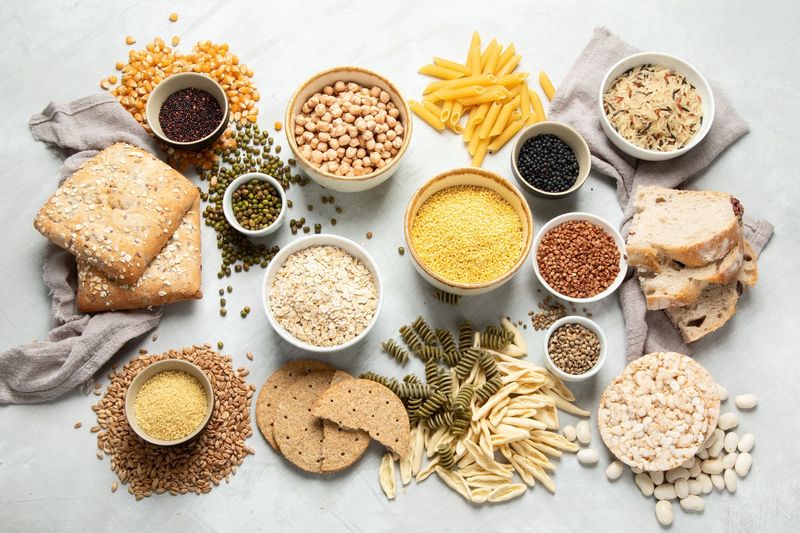



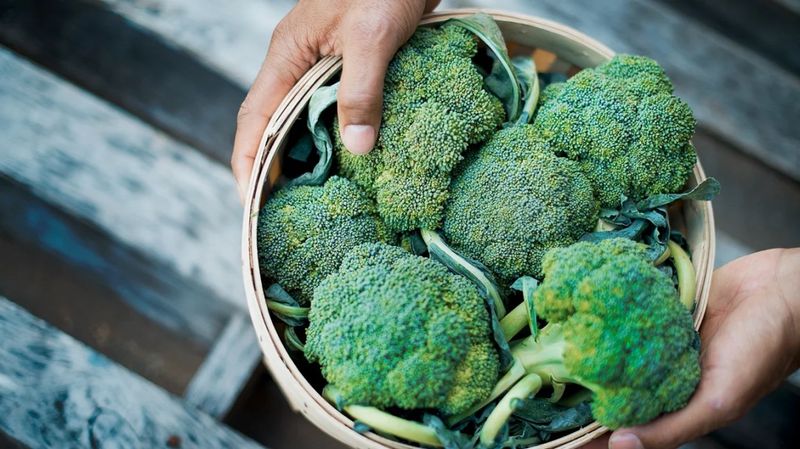
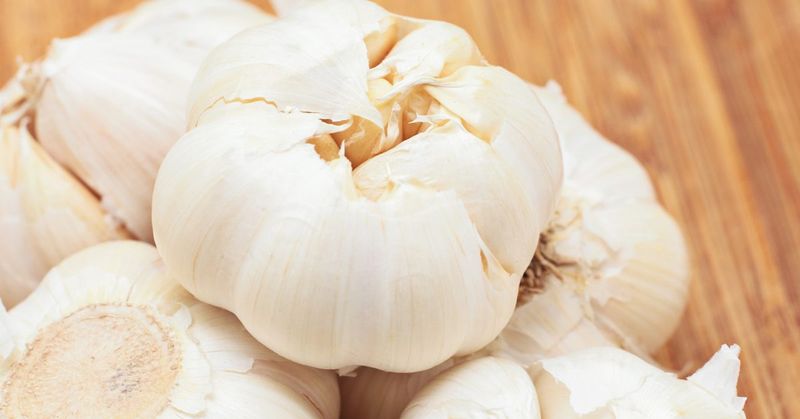
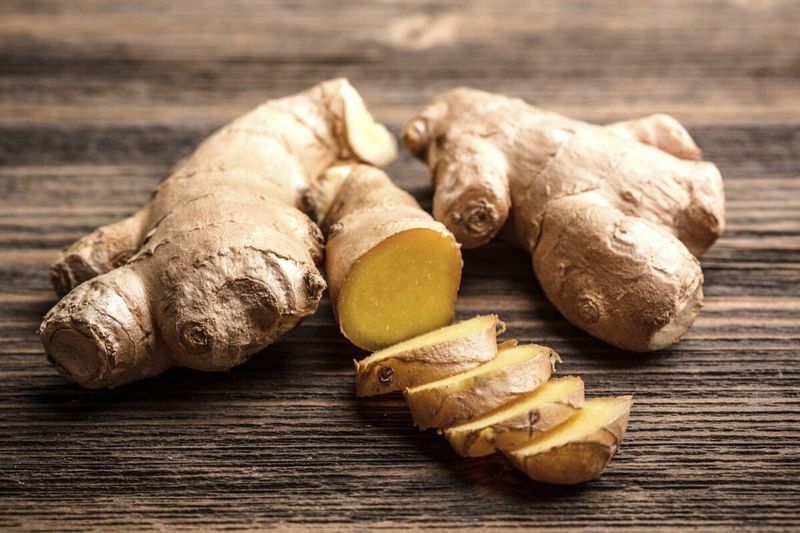


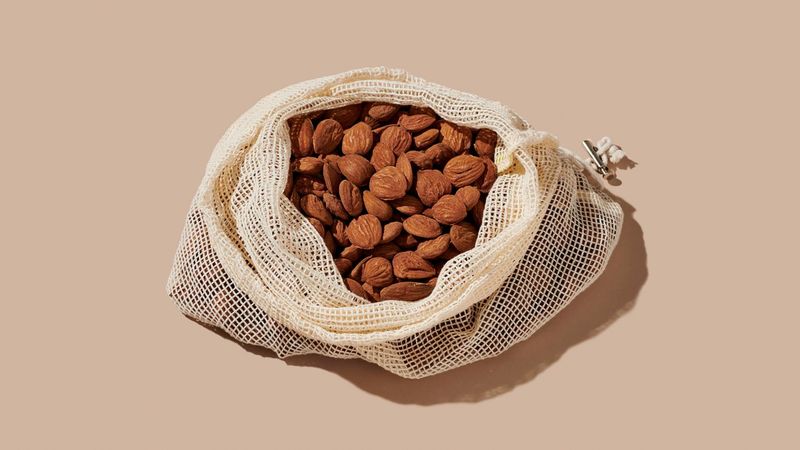
Leave a comment